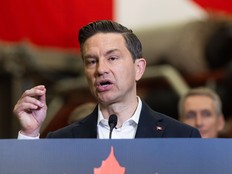LAU: Toronto taxpayers should demand better of city’s homelessness services

Article content
According to a recent City of Toronto report, in October 2024, there were an estimated 15,400 people experiencing homelessness in the city — more than double the approximately 7,300 homeless in April 2021. Of the homeless population, about 80% stay in city-administered sites, 10% in provincially-administered sites, and 10% outdoors.
Homelessness and poverty are significant problems in Toronto and governments should undertake some efforts to tackle these problems and mitigate their effects. However, whether politicians are using taxpayer money effectively in trying to do so is another matter, and in the case of Toronto’s spending on homelessness services, the numbers suggest there’s significant room for improvement.
In 2024, the gross expenditures operating budget for Toronto Shelter and Support Services, which is responsible for managing homelessness services, was $787.5 million. The capital budget was another $78.2 million. With a homeless population of 15,400, the city’s homelessness operating budget alone works out to about $51,000 per homeless person per year. For reference, the median after-tax income among Canadians in 2023 was $39,900.
In other words, if you took the City of Toronto’s homelessness services operating budget in 2024 and divided the cash among the city’s homeless population, each homeless person would have 28% higher income than the typical Canadian.
Another data point in the report: The average market rent for a bachelor unit in Toronto in 2024 was $1,456 per month, which works out to $17,472 per year. This is one-third of that $51,000 per-homeless person to put a roof over the head of each of the 15,400 homeless people, even at a level of quality such that the amenities and comfort are comparable to those of an average resident of a bachelor unit in the city. Homelessness services include more than just providing shelter, but again, the wide gap between $17,472 and $51,000 suggests taxpayer money is not efficiently spent.
I am reminded of a 1978 speech by famed American economist Milton Friedman on the welfare state. If you took the total annual welfare expenditures made by federal, state and local governments in the name of helping the poor, according to Friedman, and divided it among the entire population that the government defined as being in poverty, it would work out to $9,000 per person. For comparison, the average after-tax income per person in the United States in those days was $6,500 per year.
“If that $9,000 per person were really going to the poor,” Friedman exclaimed, “they’d be among the rich! That income given to them would put them in the top 20% of the income distribution.” The obvious explanation for what was going on — money the government spent, supposedly on helping the poor, wasn’t going to the poor.
The same appears to be true with Toronto’s homelessness services spending. Divide the city’s homelessness services spending among the homeless and the homeless could well be considered richer than the average Canadian.
Toronto residents aren’t alone in having their money spent ineffectively. There’s plenty of evidence that governments elsewhere are ineffective in anti-poverty spending. See, for example, a California state auditor report last year detailing the state’s significant rise in homelessness even as nine state agencies spent US$24 billion on at least 30 programs over five years to prevent homelessness. Taxpayers — in Toronto, California and everywhere else — should demand better.
– Matthew Lau is an adjunct scholar with the Fraser Institute













Postmedia is committed to maintaining a lively but civil forum for discussion. Please keep comments relevant and respectful. Comments may take up to an hour to appear on the site. You will receive an email if there is a reply to your comment, an update to a thread you follow or if a user you follow comments. Visit our Community Guidelines for more information.